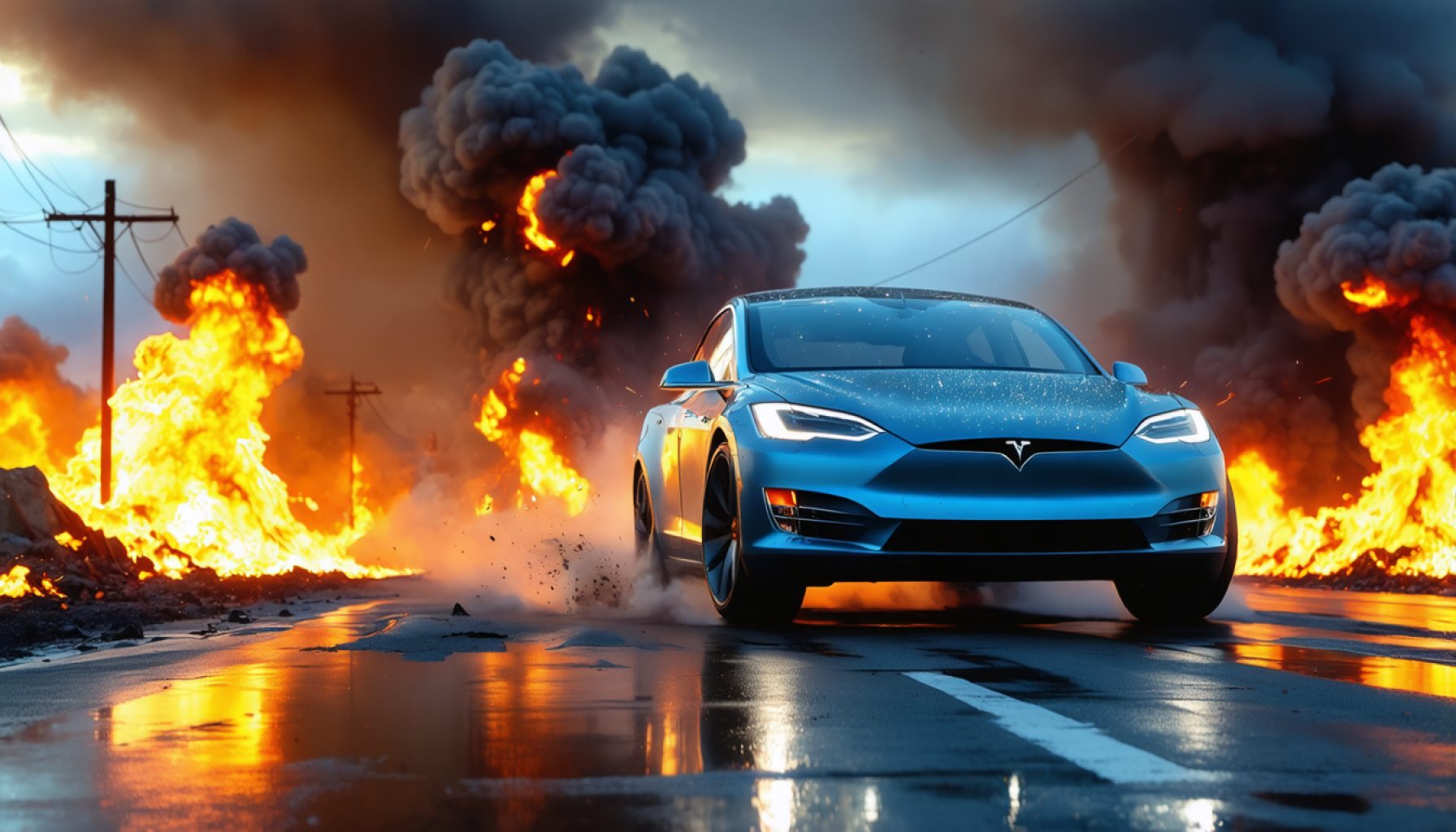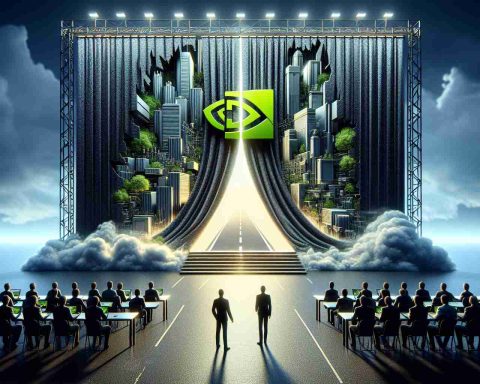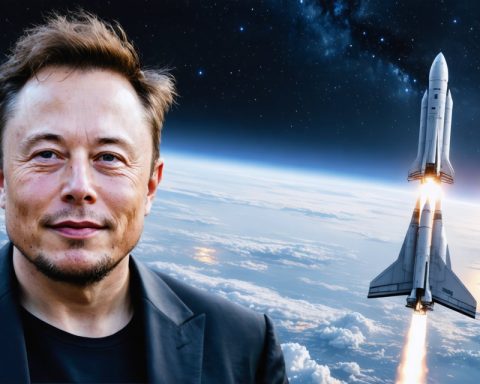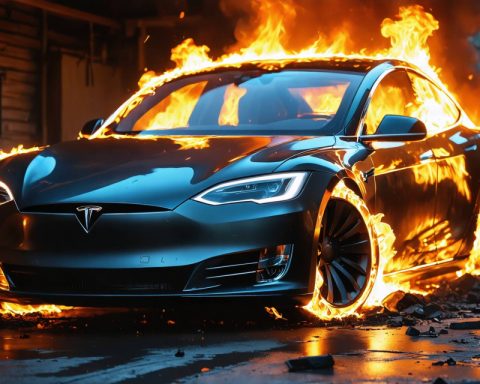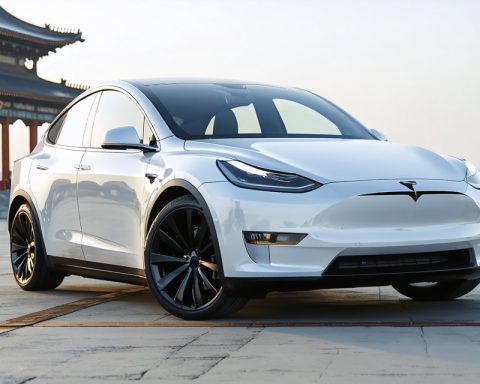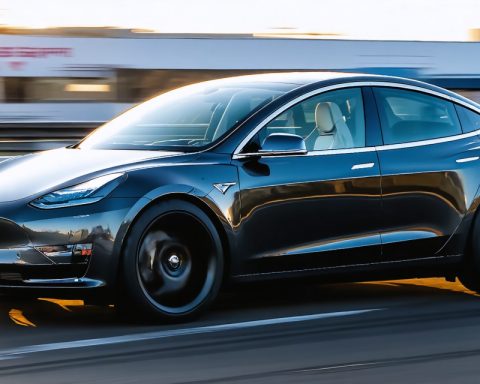- Tesla’s stock has fallen 46% from its peak, reducing its market value by $677 billion.
- Automotive sales dropped by 7.6% in 2024, linked to stagnant model designs and quality concerns.
- Elon Musk’s political alignment has negatively impacted Tesla’s brand and public perception.
- Consumer interest has waned, with only 7% of potential buyers considering Tesla in mid-2024, down from 22% in 2022.
- Owners are increasingly distancing themselves from Tesla due to its political associations.
- Supporters like Garth Ancier and Larry Broughton express dissatisfaction with the company’s direction.
- Global challenges include declining vehicle registrations in key markets such as Germany, France, and China.
- Tesla’s struggles highlight how quickly corporate reputation can be damaged by controversy and perceived value misalignments.
- The future of Tesla hinges on balancing innovation, public trust, and political neutrality.
In the ever-evolving saga of Tesla, the electric vehicle giant once synonymous with innovation and environmental progress, a bitter reality has begun to take shape. What started as a revolutionary disruptor in the auto industry now finds itself embroiled in controversy and decline. Once a darling of Wall Street, Tesla’s stock has plummeted by 46% from its peak in December 2024, wiping out a staggering $677 billion in market value. Yet, with a remaining market cap of $842 billion, questions abound: Is Tesla a buy, or merely a cautionary tale?
The company, still holding an impressive 8.6 times its annual revenue, can’t escape the clouds casting shadows over its horizon. Tesla’s automotive sales dropped 7.6% in 2024, marking a significant downturn for a company used to sky-high aspirations. This decline, rooted in stagnating model designs and quality concerns, mirrors the instability within its leadership ranks. Notably, Elon Musk’s controversial political alignment has further tarnished Tesla’s brand identity.
Across the globe, Tesla’s vibrant allure seems to have dimmed. Once boasting groundbreaking technology and celebrated for its green credentials, Tesla now struggles against rivals offering improved battery ranges and lower prices. Consumer loyalty, once ardent, has cooled dramatically; a Strategic Vision report highlights the shift—from 22% in 2022 of prospective car buyers who would “definitely consider” a Tesla, to a mere 7% by mid-2024.
And the backlash is palpable. Tesla owners, once proud of their eco-friendly chariots, now hustle to hide associations with Musk’s polarizing image. Jennifer Trebb, for instance, parted with her Model Y at a significant loss, compelled by discomfort over Tesla’s political affiliations. Dr. Kumait Jaroje, originally using his gold Cybertruck for promotion, now faces an onslaught of negative public perception and plans to offload his prized vehicle.
Even staunch supporters like Garth Ancier and Larry Broughton are jumping ship, voicing discontent with the brand’s current direction. Ancier’s unease with owning a Tesla in today’s political climate underscores a wider trend: vehicles once symbols of innovation now carry unwanted political baggage. Meanwhile, Broughton, a former Tesla enthusiast, has canceled his Cybertruck orders and contemplates selling his Tesla stocks, echoing a sentiment of disappointment in Musk’s political entanglements.
Globally, Tesla’s struggles reflect broad shifts in consumer behavior and market dynamics. Its deliveries are down substantially, even as the wider auto industry experiences resurgence. In Germany, France, and China, Tesla’s steadily declining new-vehicle registrations illustrate the brand’s mounting global challenges.
Tesla’s journey offers a powerful takeaway about the fragility of corporate reputation. Years of innovation and cutting-edge technology can be overshadowed swiftly by controversies and perceived values misalignment. With Musk at the helm, Tesla’s narrative remains as unpredictable as ever. Whether it can steer back on course, or become a modern cautionary tale, rests on a precarious balance between innovation, public trust, and political neutrality.
Tesla’s Tumultuous Journey: What the Future Holds for the EV Leader
Understanding the Current State of Tesla
Tesla’s Stock Decline and Market Valuation:
– As of late 2024, Tesla’s stock has seen a dramatic decline, plummeting by 46% from its peak. This significant drop wiped out $677 billion in market value, leaving Tesla with a remaining market cap of $842 billion. This development raises crucial questions about the viability and future potential of the once-dominant electric vehicle (EV) pioneer.
Revenue Multiples and Market Position:
– Despite the challenges, Tesla trades at 8.6 times its annual revenue, indicating that investors still see potential in its business model. This metric showcases both a mark of market confidence and a need for Tesla to deliver on growth expectations.
Challenges Impacting Tesla
Decline in Sales and Model Stagnation:
– Tesla’s automotive sales decreased by 7.6% in 2024, signaling a substantial downturn attributed to stagnating model designs and ongoing quality concerns. This is particularly alarming given that Tesla was once synonymous with innovation and cutting-edge technology.
Leadership Controversies:
– The controversy surrounding Elon Musk’s political alignments negatively impacts Tesla’s brand identity. Musk’s divisive public persona has contributed to a loss of consumer loyalty, traditionally a strong asset for Tesla.
Dimming Global Appeal:
– Internationally, Tesla faces declining new-vehicle registrations in key markets like Germany, France, and China. This downturn is compounded by increasing competition from rivals offering improved battery ranges and more affordable prices.
Consumer Sentiment and Market Dynamics
Shift in Consumer Loyalty:
– Consumer affinity for Tesla vehicles has notably cooled. A Strategic Vision report indicates a dramatic reduction in potential buyers willing to consider Tesla—from 22% in 2022 to just 7% by mid-2024.
Political Baggage and Public Perception:
– Several Tesla owners are distancing themselves from the brand due to Musk’s image. Notable cases include Jennifer Trebb and Dr. Kumait Jaroje, who are either selling their vehicles or reconsidering their associations with Tesla.
Influence on Loyalists:
– Once devoted supporters such as Garth Ancier and Larry Broughton are expressing dissatisfaction with Tesla’s current trajectory. Their concerns echo broader frustrations, as Tesla vehicles transition from symbols of innovation to carriers of political baggage.
Opportunities and Predictions
Market Trends and Future Scenarios:
– The broader automotive industry is experiencing a resurgence that Tesla could capitalize on by returning to its innovative roots. Emphasis on new models, improved production techniques, and addressing customer feedback could revive consumer interest.
Technological Innovation as a Way Forward:
– Tesla must harness its pedigree of innovation to overcome existing challenges. Enhancements in battery technology, autonomous driving capabilities, and renewable energy integration could set Tesla apart from the competition once again.
Actionable Recommendations
Immediate Steps for Tesla Enthusiasts and Investors:
– For Consumers: Stay updated on potential new releases or improvements in existing models which might revive Tesla’s appeal.
– For Investors: Closely monitor Tesla’s quarterly reports and leadership decisions to make informed decisions about stock investments.
– For Tesla Owners: Consider the political context in which you are purchasing and using your Tesla vehicles, as public perception can affect the resale value and personal experience.
Conclusion
Tesla’s journey offers crucial lessons on the influence of corporate reputation and the role of leadership in tech companies. The road ahead requires a strategic balance between innovation and public trust, with an emphasis on depoliticizing the brand for stable growth. Whether Tesla can redirect its path or transform into a cautionary tale of modern corporate challenges remains in the hands of its leadership.
For more information on electric vehicles and the evolving landscape of automotive technology, visit Tesla.

